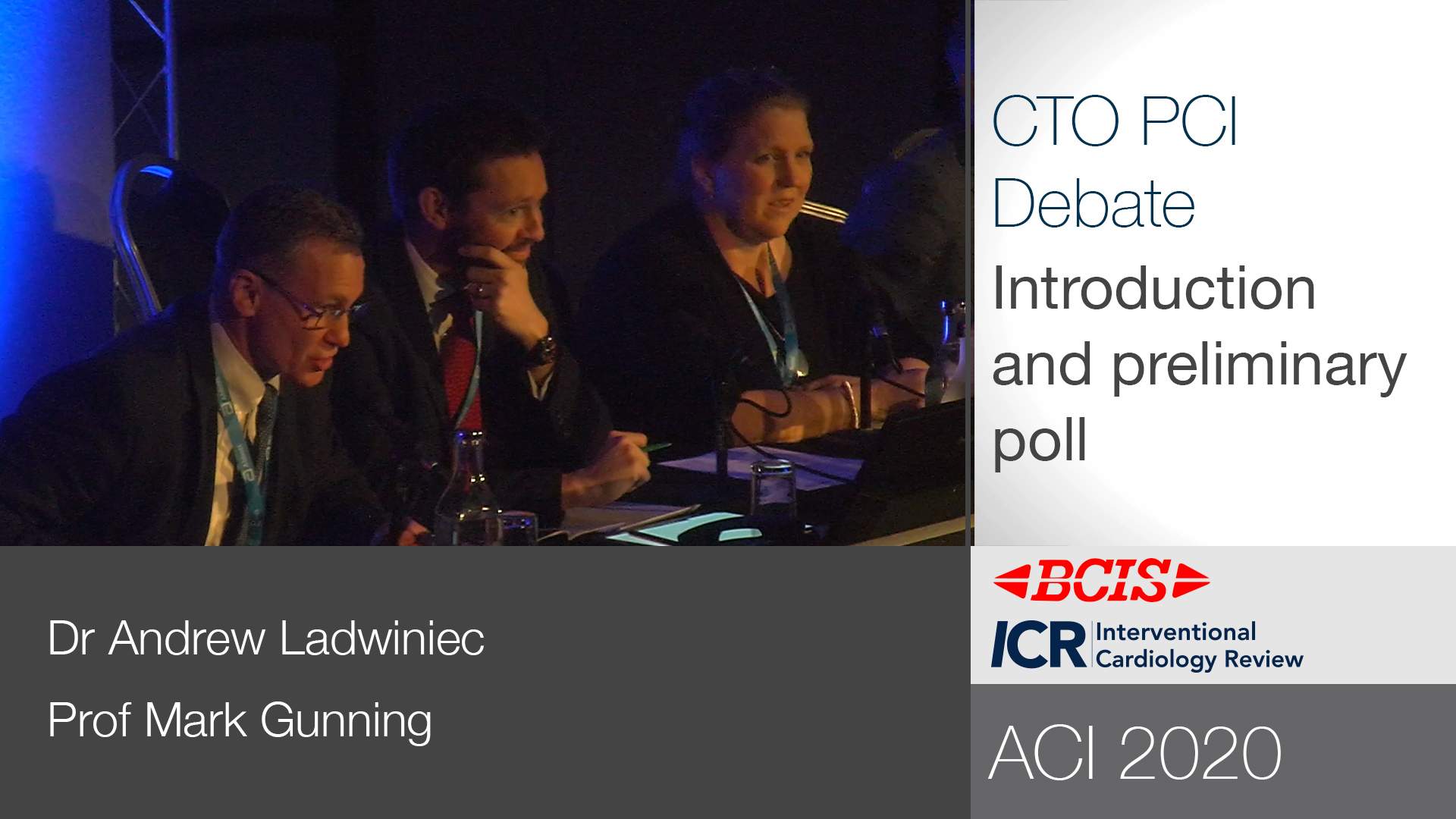BCIS ACI 2020: CTO PCI Has No Prognostic Benefit - Is It a Waste of Time & Money?
Published: 07 February 2020
-
Views:
 38
38
-
Likes:
 7
7
-
Views:
 38
38
-
Likes:
 7
7
-
 8m 28sPart 4 Panel Discussion
8m 28sPart 4 Panel Discussion
-
 1m 59sPart 1 Introduction and Preliminary Poll Andrew Ladwiniec, Mark Gunning, Daniel J Blackman, James Spratt, Rosemary Swallow, Jonathan Hill
1m 59sPart 1 Introduction and Preliminary Poll Andrew Ladwiniec, Mark Gunning, Daniel J Blackman, James Spratt, Rosemary Swallow, Jonathan Hill
-
 10m 32sPart 2 Pro Argument Daniel J Blackman
10m 32sPart 2 Pro Argument Daniel J Blackman
Overview
This video debate series filmed at the BCIS ACI meeting 2020, examines whether or not CTO PCI has any prognostic benefits. They examine the pros and cons for use and discuss if the advantages outweigh the cost.
Thanks to BCIS for providing this footage
This content was provided by the courtesy of BCIS.

More from this programme
Part 1
Introduction and Preliminary Poll
Prof Mark Gunning (University Hospital of North Midlands, Stoke-on-Trent, UK) asks the audience to cast their vote on the proposition that “CTO PCI has no prognostic benefit and it is a waste of time and money”. Dr Andrew Ladwiniec (University Hospitals of Leicester NHS Trust, Leicester, UK) introduces the panel of the debate.
| 1 session | |
| Introduction and Preliminary Poll | Watch now |
Part 2
Pro Argument
Dr Dan Blackman (Leeds Teaching Hospitals NHS Trust, Leeds, UK) argues that CTO PCI has no prognostic benefit and it is a waste of time and money.
| 1 session | |
| Pro Argument | Watch now |
Part 3
Contra Argument
CTO PCI is often used to treat patients with chronic total occlusion (CTO), or complete blockages of the coronary arteries. Dr James Spratt (London Bridge Hospital, London, UK) argues for the cost-effectiveness and efficacy of percutaneous coronary intervention (PCI) for chronic total occlusion.
| 1 session | |
| Contra Argument | Watch now |
Part 4
Panel Discussion
The panel and the chairs are concluding the debate by furthering the arguments of CTO PCI delivered by Dr Dan Blackman (Leeds Teaching Hospitals NHS Trust, Leeds, UK) and Dr James Spratt (London Bridge Hospital, London, UK).
| 1 session | |
| Panel Discussion | Watch now |
Faculty Biographies

James Spratt
Consultant Interventional Cardiologist
Dr James Spratt is one of a small number of interventional cardiologists in the world who are pioneering techniques to unblock coronary arteries by Percutaneous Coronary Intervention (PCI).







